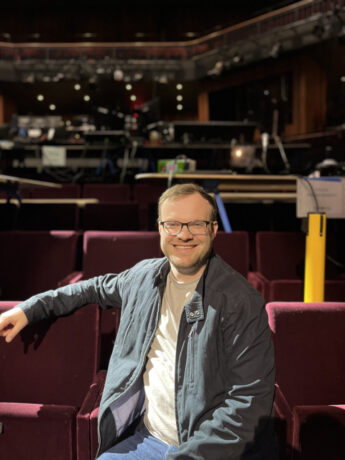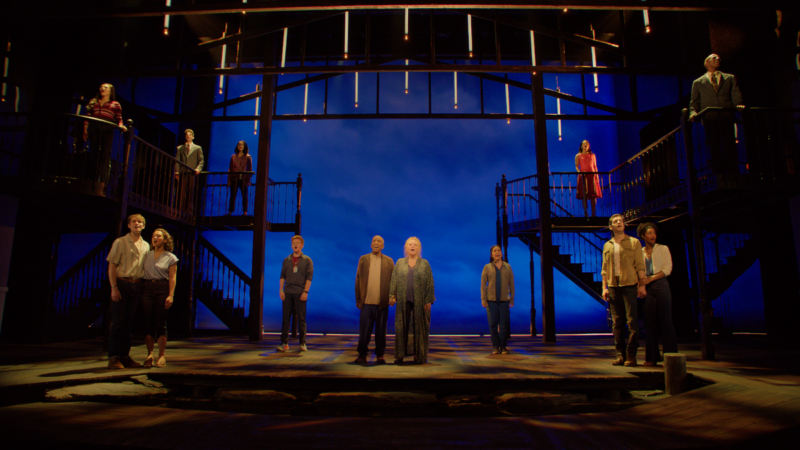
The Notebook, the beloved romance novel-turned-film, has come to Broadway to make a new generation of audiences swoon. The new musical, filled with music by singer-songwriter Ingrid Michaelson, opened in March at the Gerald Schoenfeld Theatre. Lighting Designer Ben Stanton brought the iconic love story to life on stage in lush, dreamy hues using ETC Source Four LED Series 3 and Source Four incandescent fixtures run by an ETC Eos Apex console programmed by Colin Scott.
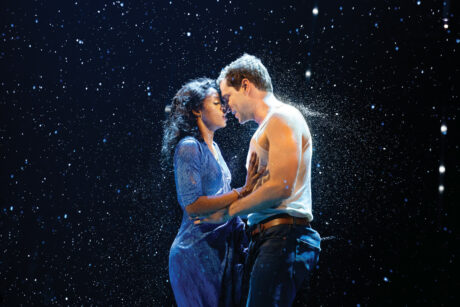 The musical flows seamlessly through three stages in a couple’s decades-long relationship, opening in a nursing home near the end of their lives. “The nursing home is lit in a very clinical, cold palette, and a lot of what I did with the design was contrast their present-day world with the vivid beauty of their memories,” says Stanton.
The musical flows seamlessly through three stages in a couple’s decades-long relationship, opening in a nursing home near the end of their lives. “The nursing home is lit in a very clinical, cold palette, and a lot of what I did with the design was contrast their present-day world with the vivid beauty of their memories,” says Stanton.
As the characters begin to reflect on their love story and their younger selves enter the stage, the stage is filled with vibrant color. “In the memory scenes I wasn’t interested in realism. It was more important to me to capture the emotional energy and beauty of their memories. The nostalgic feeling of remembering happier times, of being young, of having your whole life ahead of you, and of falling in love,” says Stanton. “One of the important aspects of the design was to be able to shift seamlessly between the present and the past.”
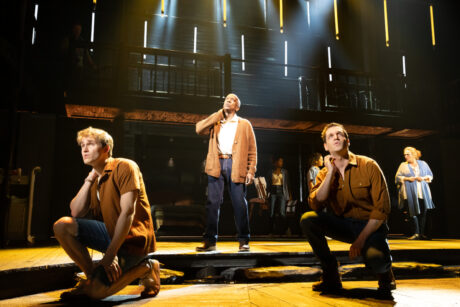 These rich shifts in color were achieved with the help of ETC’s Source Four LED Series 3 Lustr X8 fixtures. With Series 3, the addition of Deep Red to the color spectrum allows designers to render skin tones and sunsets with unparalleled depth and texture. Assisting in that feeling were classic ETC Source Four incandescent fixtures: “I usually like to include incandescent fixtures in all of my shows,” Stanton says of the naturally warm fixture.
These rich shifts in color were achieved with the help of ETC’s Source Four LED Series 3 Lustr X8 fixtures. With Series 3, the addition of Deep Red to the color spectrum allows designers to render skin tones and sunsets with unparalleled depth and texture. Assisting in that feeling were classic ETC Source Four incandescent fixtures: “I usually like to include incandescent fixtures in all of my shows,” Stanton says of the naturally warm fixture.
The show runs on an Eos Apex console. “The Apex was really fantastic to have on that show, having extra encoders was really a huge time saver,” says Programmer Colin Scott. “The show has a ton of templates and being able to use multiple encoders to rotate a template and run an edge at the same time was so useful.” Apex’s two 27-inch 4k displays were much needed for a production of this scale: “We had over 10 cue lists running at any given time, so having the screen real estate to be able to manage those cue lists was so helpful.”
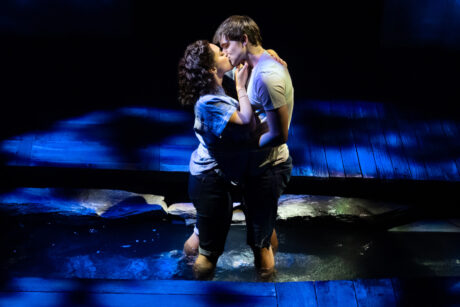 The show utilizes 36 custom-made lighting elements that hang on winches above the stage. The “light sticks,” as they’ve become known, shift in color to the needs of each scene: from fluorescent ceiling lights in one moment to a constellation of stars in the next. “We used pixel maps for all of the light sticks, which was a huge time saver to be able to put patterns across them without having to go pixel by pixel,” says Scott. “Each stick was 56 pixels high, times 36 sticks, and they all had unique looks, so being able to map a gradient or fully etch a pattern across all of it on the Apex without having to spend hours nitpicking made it a really helpful tool.”
The show utilizes 36 custom-made lighting elements that hang on winches above the stage. The “light sticks,” as they’ve become known, shift in color to the needs of each scene: from fluorescent ceiling lights in one moment to a constellation of stars in the next. “We used pixel maps for all of the light sticks, which was a huge time saver to be able to put patterns across them without having to go pixel by pixel,” says Scott. “Each stick was 56 pixels high, times 36 sticks, and they all had unique looks, so being able to map a gradient or fully etch a pattern across all of it on the Apex without having to spend hours nitpicking made it a really helpful tool.”

“The music was deeply inspirational to me,” Stanton says. “I find the music in The Notebook to be very moving and emotionally charged, with themes of longing, love, and loss, so it was easy to create worlds of light for these songs.” A moving piece of theatre needs equipment it can rely on to support its crew from opening night to the final curtain. With ETC, that’s an easy ask. “I use Eos consoles for the majority of my work and find it to be the best for anything theatrical,” Scott says. “There’s nothing else out there that matches it.”
Further information from ETC: etcconnect.com
